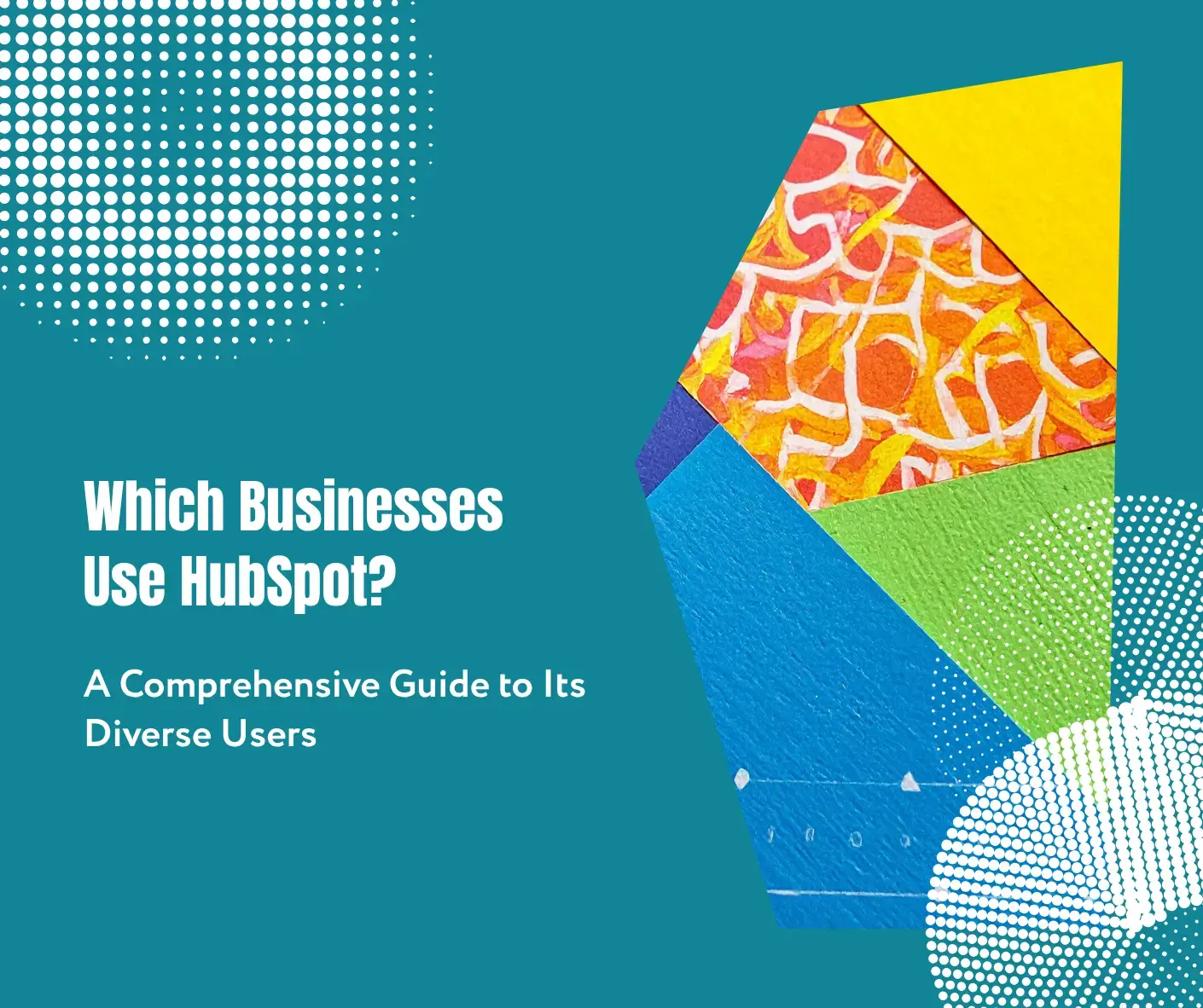Which Businesses Use HubSpot? A Guide to Its Diverse Users

What is HubSpot and Why Does It Shine?

Before we explore which businesses are hopping on the HubSpot bandwagon, let’s get a quick lay of the land. HubSpot is like a Swiss Army knife for business growth, packing tools for email marketing, social media management, sales pipelines, customer support, and a robust CRM into one platform. Founded in 2006 by Brian Halligan and Dharmesh Shah, it was built on the idea that customers don’t want to be bombarded with ads—they want helpful, relevant content (HubSpot Story). This inbound marketing philosophy has made HubSpot a go-to for businesses looking to attract, engage, and delight their audience.
Why do businesses love it? It’s intuitive, scalable, and integrates with over 1,800 apps, from Salesforce to Shopify (HubSpot). Whether you’re a solo entrepreneur or a global enterprise, HubSpot’s flexibility means you can start small with free tools and scale up as your needs grow. Plus, its AI-powered features, like Breeze agents, make tasks like content creation and lead prospecting feel like a breeze—pun intended. So, which businesses are tapping into this power?Types of Businesses Using HubSpot

Small and Medium-Sized Businesses (SMEs): The Core Users
For small businesses, HubSpot is like that reliable mate who’s always got your back. Data suggests that 78% of HubSpot users are companies with revenues under $50M, often with 1-10 employees (DataCaptive). These SMEs use HubSpot’s free CRM and affordable plans to manage leads, automate emails, and create content without needing a massive budget. Imagine a local coffee shop using HubSpot to send targeted promotions to loyal customers or a boutique agency tracking client campaigns—HubSpot makes it simple and cost-effective.
- Why SMEs Choose HubSpot:
- Affordability: Free tools and low-cost plans fit tight budgets.
- All-in-One: Manage marketing, sales, and service in one place, saving time.
- Scalability: Grow from free to paid plans as revenue increases.
Large Enterprises: Powering Complex Operations
Think HubSpot’s just for the little guys? Think again. Large enterprises with revenues exceeding $1B make up 5% of HubSpot’s user base, proving its muscle for big players (DataCaptive). Companies like Accenture and Zendesk integrate HubSpot into their tech stacks to manage complex marketing and sales strategies. For a global firm like Accenture, HubSpot’s enterprise features—like AI-powered A/B testing and revenue attribution—help coordinate campaigns across teams and regions (StackShare).
- Why Enterprises Choose HubSpot:
- Advanced Analytics: Track performance across channels with custom reports.
- Integration: Connects with enterprise tools like Salesforce and NetSuite.
Startups and Tech Companies: Fueling Rapid Growth
Startups, especially in tech, are like kids in a sweet shop with HubSpot’s free tools and growth-oriented features. The platform’s ability to manage leads, automate outreach, and track performance makes it a favourite for companies aiming to scale fast. Tech firms like Vydia and EnergyHub use HubSpot to market innovative products and onboard customers efficiently (Enlyft).
- Why Startups Love HubSpot:
- Free CRM: Manage contacts without upfront costs.
- Growth Tools: Features like landing pages and email automation drive leads.
Industries Embracing HubSpot

Information Technology and Services (9%)
IT services companies, making up 9% of HubSpot’s user base, rely on the platform for lead generation and customer support. HubSpot’s automation tools streamline repetitive tasks, while analytics provide insights into campaign performance. For example, a firm like Fusion IT uses HubSpot to manage client inquiries and track project leads, ensuring no opportunity slips through the cracks (Enlyft).
- Key Uses:
- Automating email follow-ups for service inquiries.
- Tracking client interactions via the CRM.
- Analysing website traffic to optimise lead capture.
Computer Software (7%)
Software companies, accounting for 7% of users, use HubSpot to market products, onboard users, and retain customers. The platform’s content management and SEO tools help create targeted campaigns, while the CRM tracks user journeys. Zendesk, a customer service software giant, leverages HubSpot for lead nurturing and marketing automation, ensuring a seamless customer experience (Thomson Data).
- Key Uses:
- Creating product-focused landing pages.
- Personalising onboarding emails based on user behaviour.
- Measuring campaign ROI with detailed analytics.
Marketing and Advertising (6%)
Marketing agencies are like HubSpot’s biggest fans, using it to manage client campaigns, track performance, and prove ROI. The platform’s reporting tools and content hub make it easy to juggle multiple clients. Trustpilot, a review platform, uses HubSpot to streamline its marketing efforts, ensuring campaigns are data-driven and effective (Thomson Data).
- Key Uses:
- Managing client portfolios with custom dashboards.
- Automating social media posts and email campaigns.
- Generating reports to showcase campaign success.
Manufacturing
Manufacturers use HubSpot to attract distributors and manage complex sales cycles. The platform’s inbound marketing tools help create targeted content, like application guides or industry comparisons, that resonate with prospects. Cold Jet, a manufacturing firm, streamlined its efficiency and boosted customer engagement using HubSpot’s data-driven platform (HubSpot Case Studies).
- Key Uses:
- Nurturing leads with technical content.
- Tracking distributor interactions in the CRM.
- Personalising outreach based on equipment lifecycles.
Education
Educational institutions like Morehouse College use HubSpot to engage prospective students and manage admissions. The platform’s marketing automation helps nurture leads through the enrollment funnel, while analytics track campaign effectiveness. Imagine a university sending personalised emails to applicants—HubSpot makes it happen (HubSpot Case Studies).
- Key Uses:
- Automating student recruitment campaigns.
- Managing alumni relations with the CRM.
- Tracking event registrations for open days.
Healthcare
In healthcare, HubSpot helps manage patient relationships and market services while ensuring compliance. An international healthcare company with 31 million customers redefined its lead management processes with HubSpot, improving efficiency and engagement (Huble).
- Key Uses:
- Sending compliant, personalised patient communications.
- Tracking interactions for better service delivery.
- Marketing wellness programs to targeted audiences.
Non-Profits
Nonprofits use HubSpot for donor management, fundraising campaigns, and volunteer coordination. The platform’s tools help build strong supporter relationships, as seen in organisations using HubSpot to nurture donors and track campaign impact (StackShare).
- Key Uses:
- Automating donor thank-you emails.
- Managing fundraising events with forms and workflows.
- Analysing donor engagement for better outreach.
Why Businesses Choose HubSpot

What makes HubSpot the go-to choice for such a diverse crowd? It’s not just about the tools—it’s about how they work together to solve real business challenges.
- All-in-One Platform: Marketing, sales, service, and CRM tools in one place, reducing the need for multiple systems.
- Ease of Use: Intuitive interface that even non-techies can master, as noted by users like Aaron Goh from Spenmo (HubSpot Story).
- Scalability: Free tools for startups and advanced features for enterprises, with 12% of users being medium-sized businesses (DataCaptive).
- Integration: Connects with tools like Salesforce, Shopify, and Typeform for seamless workflows.
Winner
SalesForce, for its ability to handle large-scale operations and complex business needs, though HubSpot is scalable for SMBs.
Introduction

Winner
SalesForce, for its ability to handle large-scale operations and complex business needs, though HubSpot is scalable for SMBs.
Introduction

Winner
SalesForce, for its ability to handle large-scale operations and complex business needs, though HubSpot is scalable for SMBs.
Introduction

Winner
SalesForce, for its ability to handle large-scale operations and complex business needs, though HubSpot is scalable for SMBs.
Founder & CEO @ Hubxpert. My goal is to make every company using HubSpot succeed in their marketing organisation and automation.

Ratul Rahman
Table of Contents:
Subscribe to our newsletter

HubSpot: Elevating Bangladeshi Consultancies Beyond Excel
Our 2024 Beginner's Guide to Revenue Attribution Models explains key models & helps you choose the right one to optimize campaigns & boost ROI.

Why Bangladeshi Consultancies Lose 30% of Leads—and How to Fix It
Our 2024 Beginner's Guide to Revenue Attribution Models explains key models & helps you choose the right one to optimize campaigns & boost ROI.

Bangladeshi Study-Abroad Marketing: Converting Social Media into Leads
Our 2024 Beginner's Guide to Revenue Attribution Models explains key models & helps you choose the right one to optimize campaigns & boost ROI.

Best CRM for Education Businesses in Bangladesh
Our 2024 Beginner's Guide to Revenue Attribution Models explains key models & helps you choose the right one to optimize campaigns & boost ROI.

Modern Sales Systems That Actually Convert for Bangladeshi Consultancies
Our 2024 Beginner's Guide to Revenue Attribution Models explains key models & helps you choose the right one to optimize campaigns & boost ROI.

What I Learned Helping Healthcare Businesses Fix Their Sales & Marketing Process
Discover how connected CRM systems like HubSpot can transform healthcare sales and marketing processes, improving patient engagement, reducing no-shows, and streamlining workflows.
-

HubSpot: Elevating Bangladeshi Consultancies Beyond Excel
Discover how businesses are using HubSpot to streamline marketing efforts, boost lead generation, and drive sustainable growth through data-driven strategies.
Marketing -

Why Bangladeshi Consultancies Lose 30% of Leads—and How to Fix It
Discover how businesses are using HubSpot to streamline marketing efforts, boost lead generation, and drive sustainable growth through data-driven strategies.
Marketing -

Bangladeshi Study-Abroad Marketing: Converting Social Media into Leads
Discover how businesses are using HubSpot to streamline marketing efforts, boost lead generation, and drive sustainable growth through data-driven strategies.
Marketing -

Best CRM for Education Businesses in Bangladesh
Discover how businesses are using HubSpot to streamline marketing efforts, boost lead generation, and drive sustainable growth through data-driven strategies.
Marketing -

Modern Sales Systems That Actually Convert for Bangladeshi Consultancies
Discover how businesses are using HubSpot to streamline marketing efforts, boost lead generation, and drive sustainable growth through data-driven strategies.
Marketing -

What I Learned Helping Healthcare Businesses Fix Their Sales & Marketing Process
Discover how businesses are using HubSpot to streamline marketing efforts, boost lead generation, and drive sustainable growth through data-driven strategies.
General



